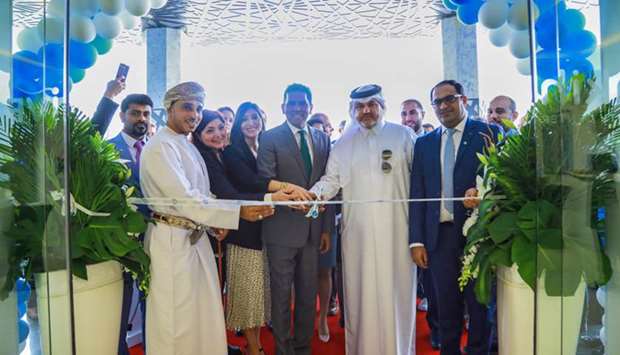NMC Healthcare’s Fakih IVF, a leading fertility services provider in the Middle East, has opened its new Fertility Center in Doha.
This marks a “continuation of the company’s commitment to improve access to high-quality healthcare and provide personalised patient care”, according to a press statement.
A special ceremony to mark the grand opening of the clinic on Al Waab Street was held on February 18 in the presence of chief guests Wissam al-Anqar and Khalid Mohamed al-Hinai, Dr Deep Makkar – country manager of NMC Oman, Dr Nirouz Mazkatli – medical director/consultant, obstetrics and gynaecology, and senior management from NMC Oman, as well as many other high-profile doctors and community members.
The opening of the new branch is a “step forward to expand the clinic’s services and cater to the requirements of patients in Qatar”, the statement notes. It will “ensure that all patients have access to world-class treatment facilities throughout their journey towards achieving fertility.”
Fakih IVF’s sixth branch across the GCC will offer all assisted technologies for the diagnosis and treatment of infertility.
“Fakih IVF provides the most comprehensive range of male and female infertility treatments available, including IVF-ICSI, IUI, genetic testing, fertility preservation,
family balancing and many more,” the statement points out.
Dr Makkar said the new Fertility Center is fully equipped with patient care facilities, including two operation theatres, outpatient clinics, an ultrasound room, two labs, a pre-procedure room and a post-procedure room.
“The Center has the capacity to perform over 100 IVF cycles monthly, undertaken by a panel of board-certified, highly-specialised IVF experts and medical staff,” he said.
“With the rising demand for infertility treatments in the region, Fakih IVF continues to strategically expand our already extensive network. We’re excited to extend our services and world-class treatments to reach the Qatari community through the opening of our new Doha clinic.”
Dr Mazkatli added: “Alongside the specialised treatments, the Center offers psychological support to couples as it is critical that the patient is in a good psychological condition before medical treatment.
“Infertility rates are on the rise. Historically, it’s women who seek medical testing for infertility; however, we are now seeing more males coming forward to seek medical help. This shift in testing is an encouraging sign. It shows there is a better understanding of infertility problems within society; that it’s an issue for both men and women.”

Officials and guests at the opening of Fakih IVF Fertility Center in Doha.
